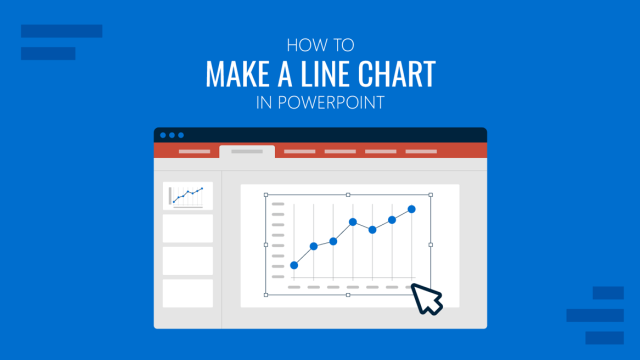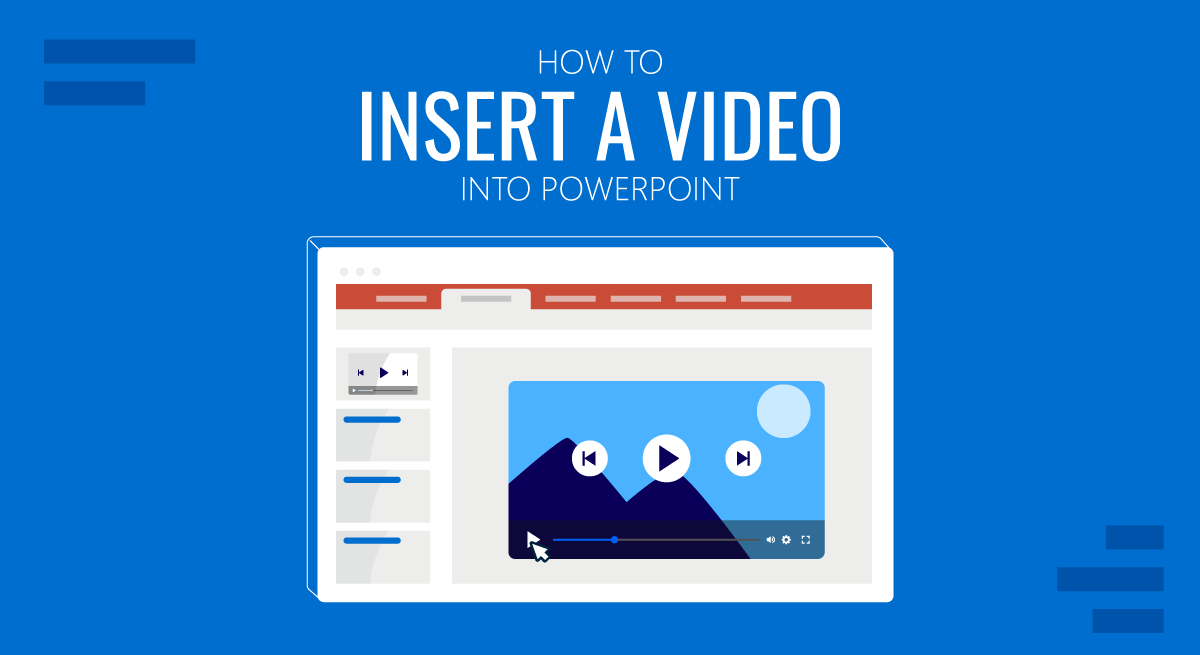
Adding videos to slides can save a lot of time explaining different concepts. A short video can help make even complex ideas easy to grasp with visual aids and assist the presenter in avoiding making several slides explaining the topic. You can add videos to your custom slides or PowerPoint templates from your device or online sources by following a few easy steps.
How to Add Video to PowerPoint
Just as we explained in a previous tutorial about how to add a video to Google Slides, adding a video to PowerPoint is quite similar. To get started, click the Insert tab and select Media -> Video. Now, select the source for your video.
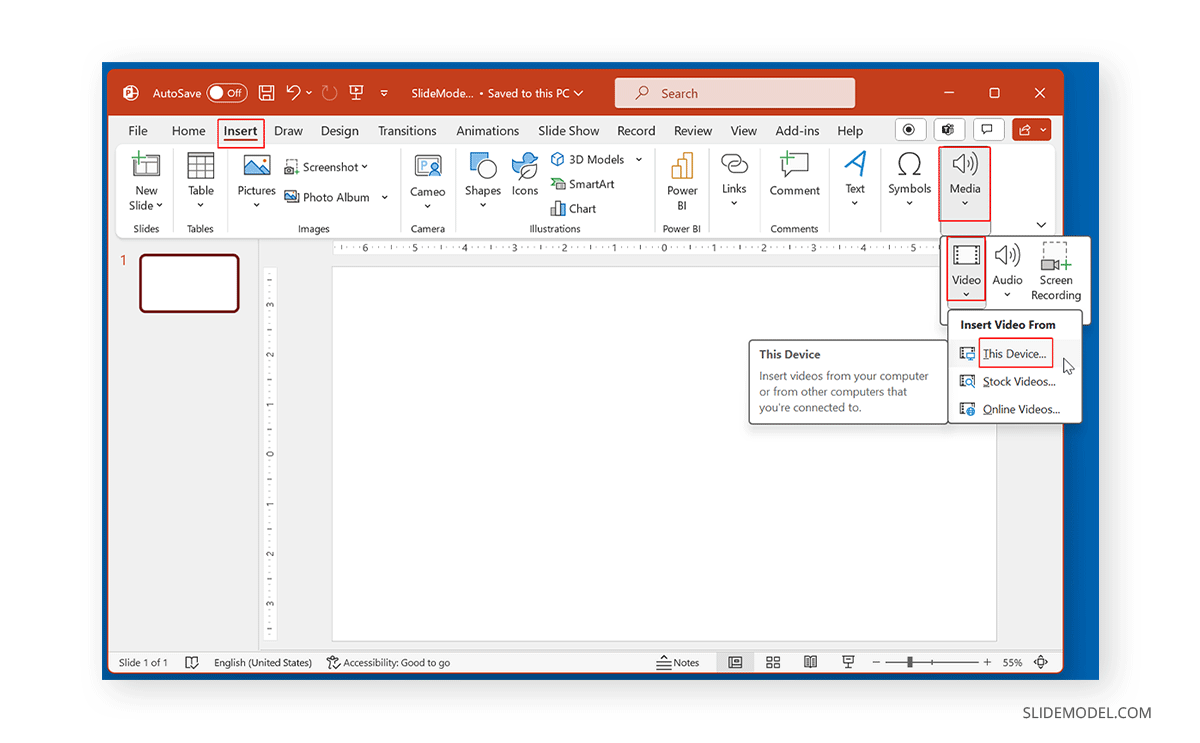
Add Video from Device
You can add a video from your device by browsing to the location where the video is located to select it.
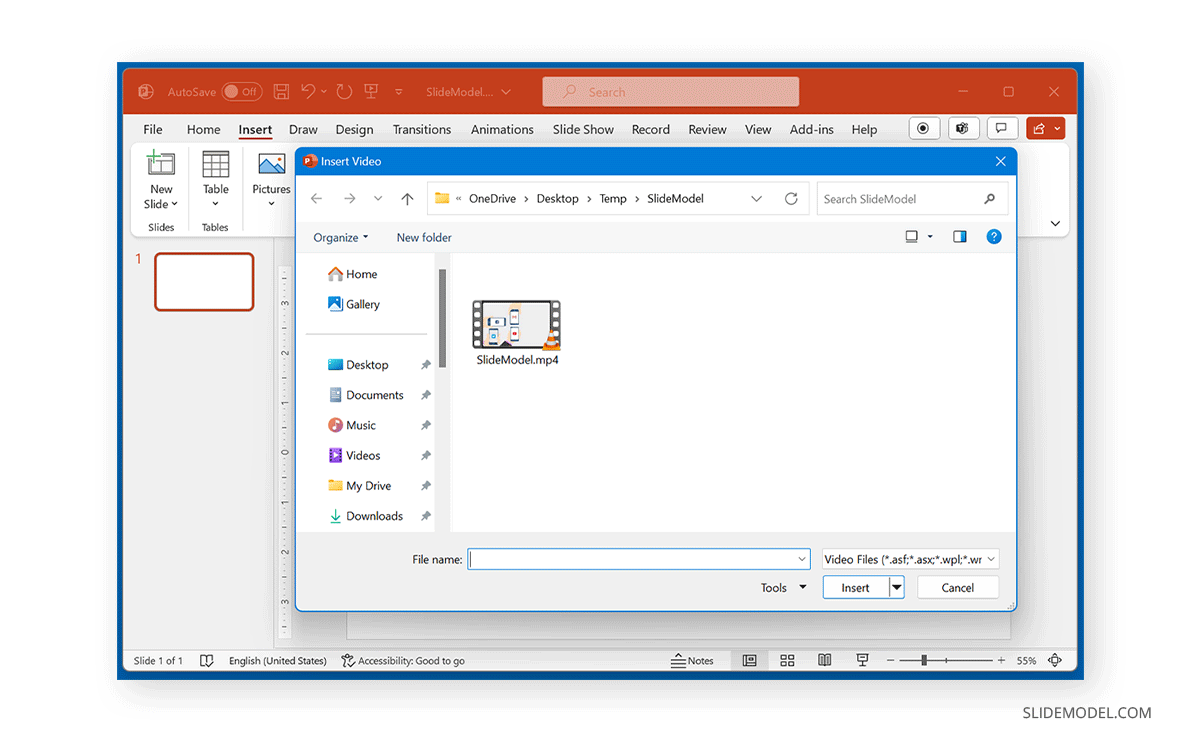
Add a Stock Video
To add a stock video, select the Stock Videos option from the Video dropdown menu, search for a video, and select to insert it.
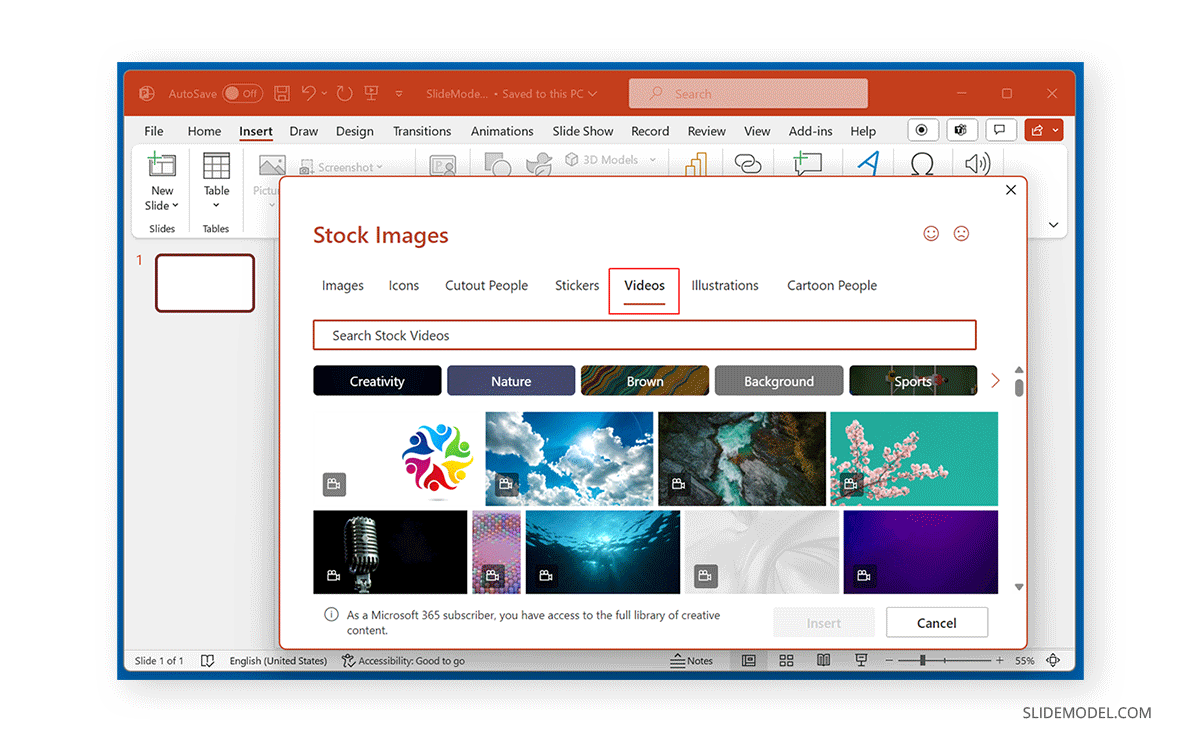
Add Videos from Online Sources
Videos can also be added from online sources by adding the URL for a video from different sources such as YouTube, SlideShare, Vimeo, Stream, and Flip. For more details regarding this process, see our tutorial about how to embed a YouTube video in PowerPoint.
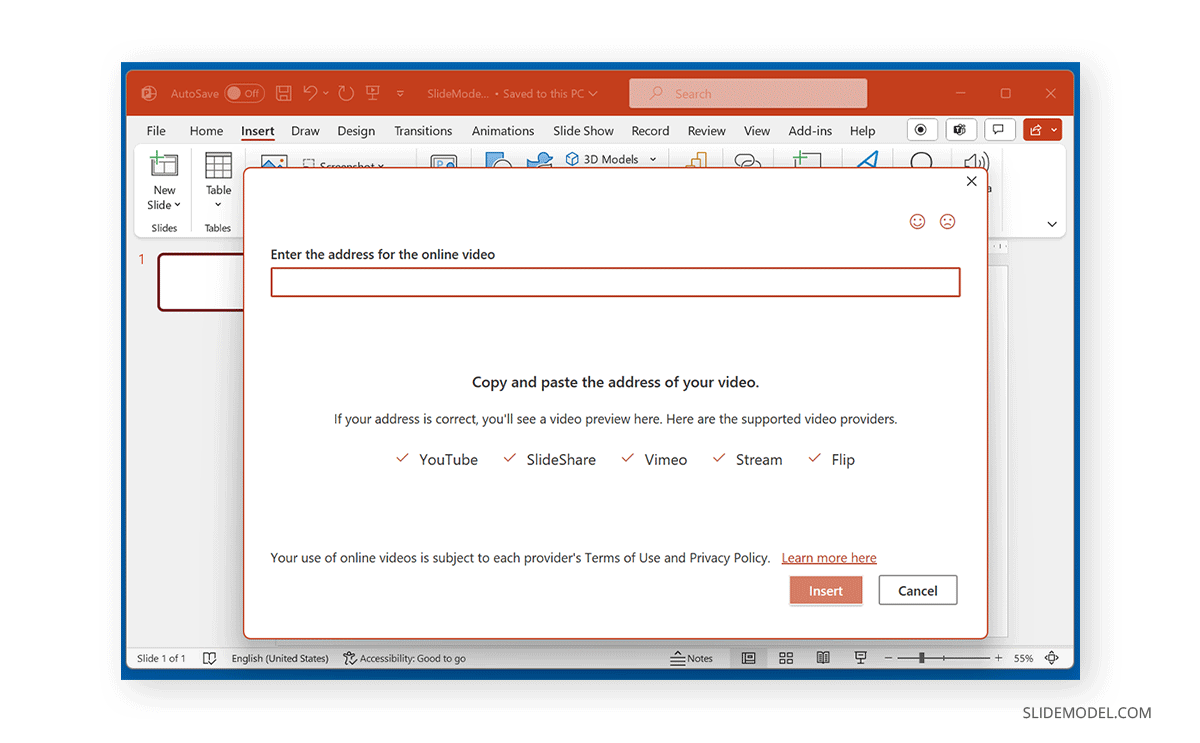
Format Video Added to PowerPoint
Once you have added a video in PowerPoint, you can format the video to adjust it according to need. The video size can be adjusted either from the Video Format tab or via drag and drop. The same tab also provides options to crop, rotate, and adjust the colors of the added video. Cropping and resizing options are available in the Video Format tab from the Size menu.
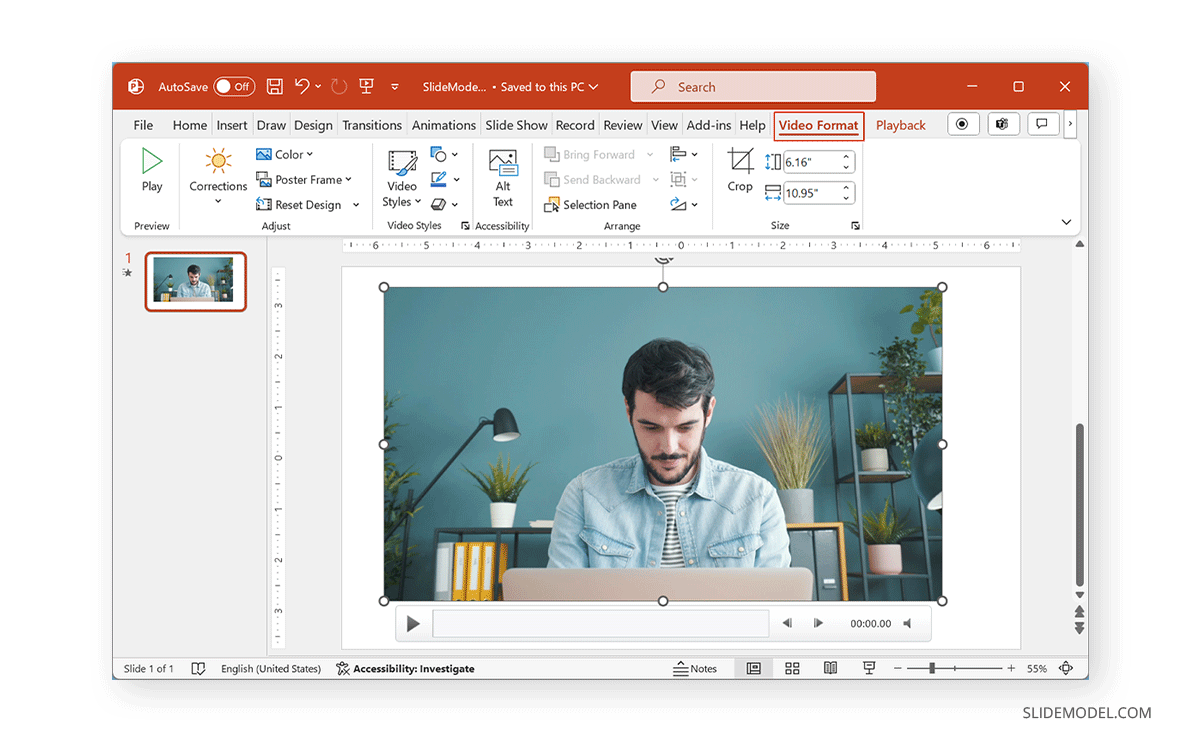
To add a video frame or change the look of the video outline, go to the Video Styles menu from the Video Format tab.
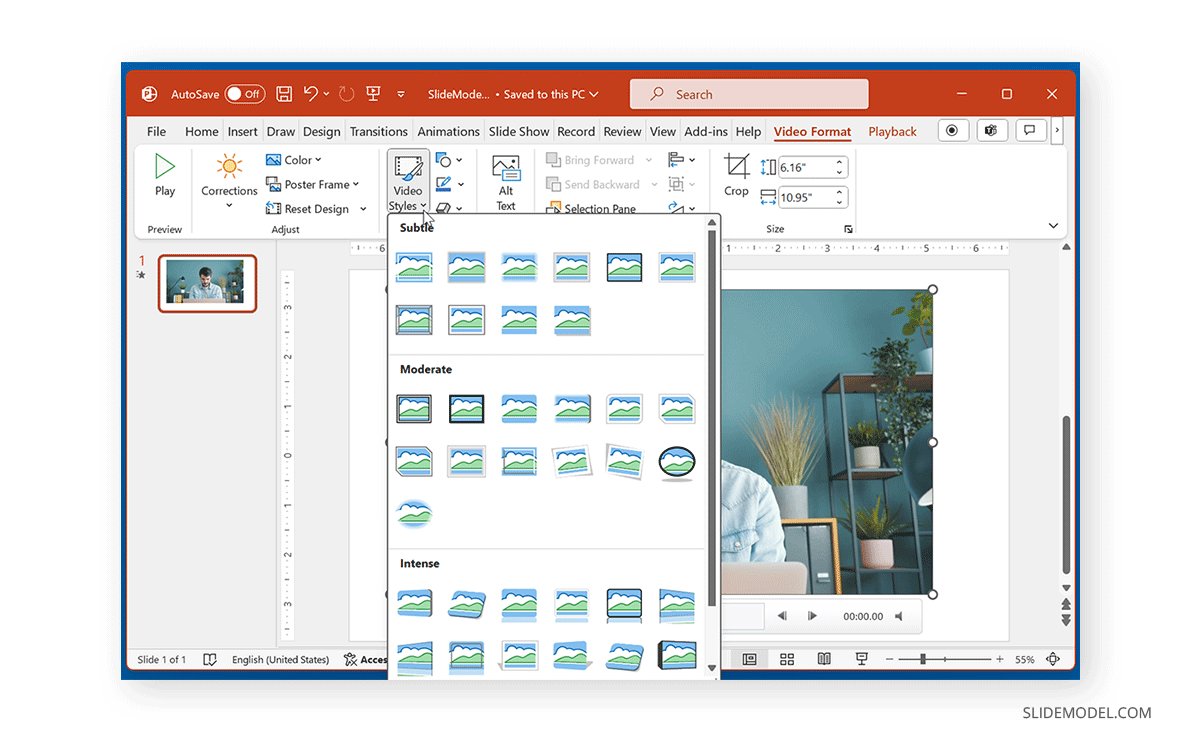
The video rotation and other adjustment options can be found in the Arrange menu in the Video Format tab.
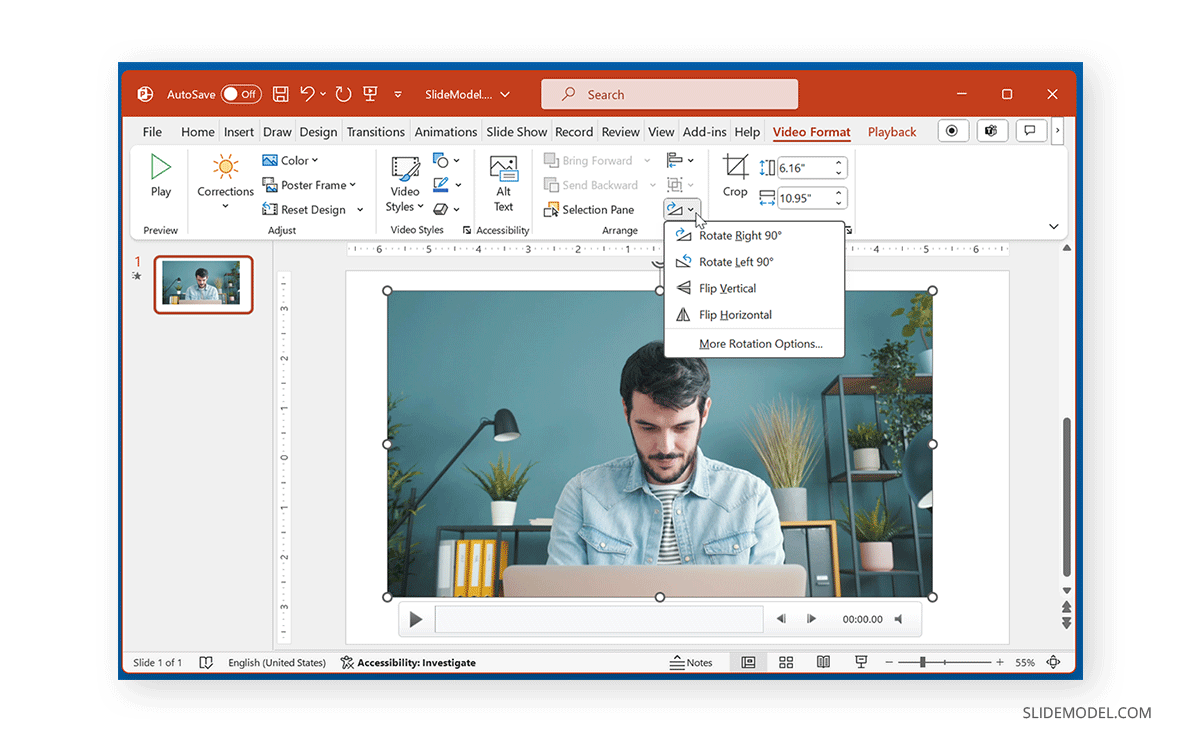
The Adjust menu in the Video Format tab provides options for color correction, adding a poster frame, and resetting the video design.
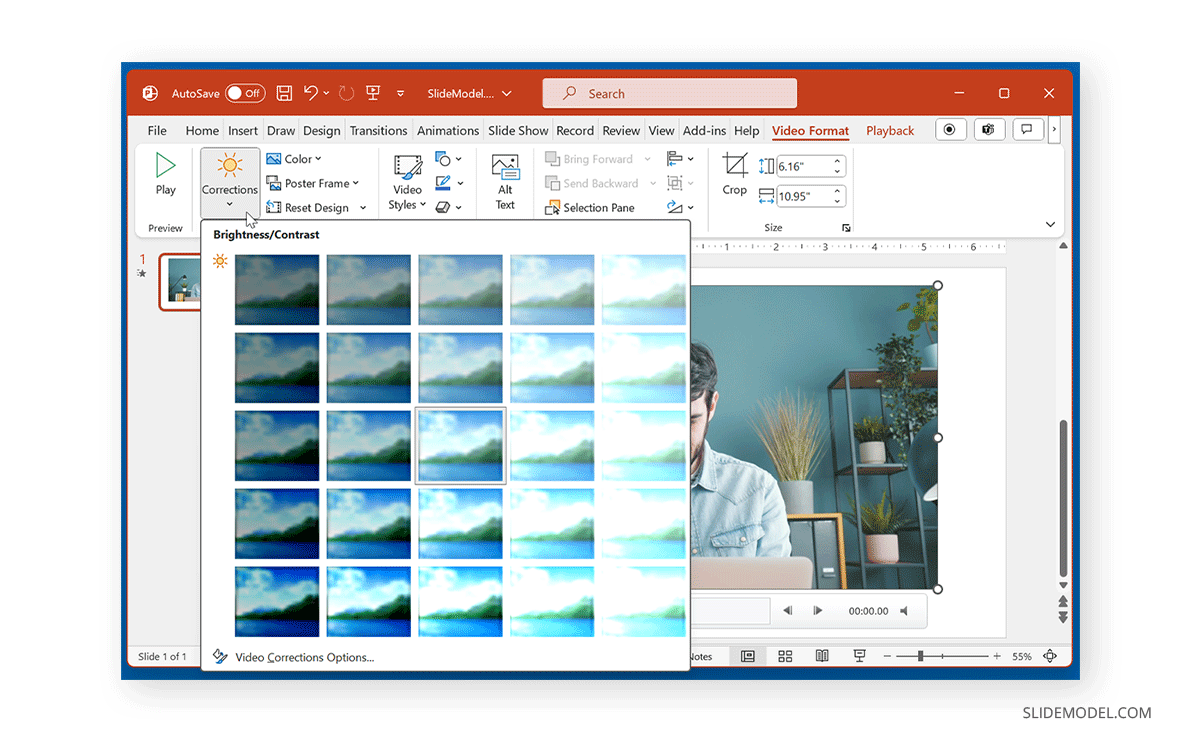
Adjust Playback Settings for Video in PowerPoint
There are a number of playback settings that you can adjust from the Playback tab in PowerPoint. You can add closed captions, select the video to play in the loop, and rewind automatically once it’s played, as well as edit the video.
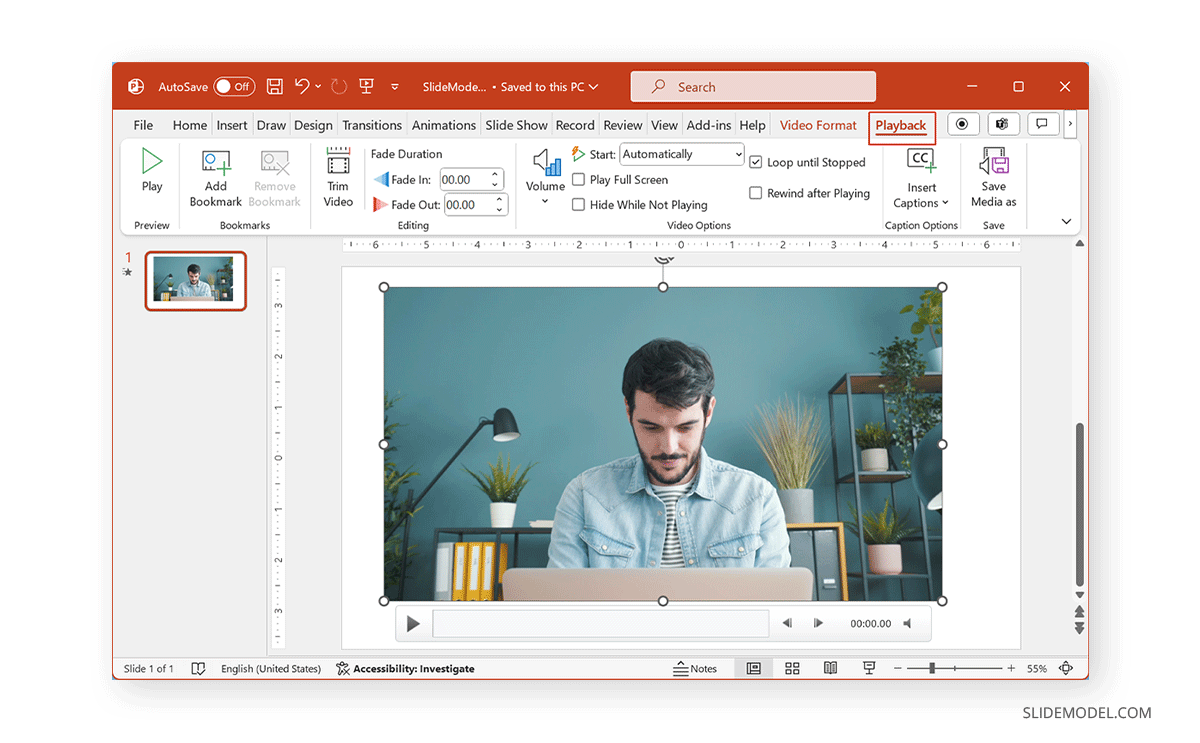
From the Video options menu in the Playback tab, select the Start dropdown menu to decide if the video will be played automatically when clicked or in a click sequence. From this menu, you can also select whether the video is to be played in full screen and hidden when not played.
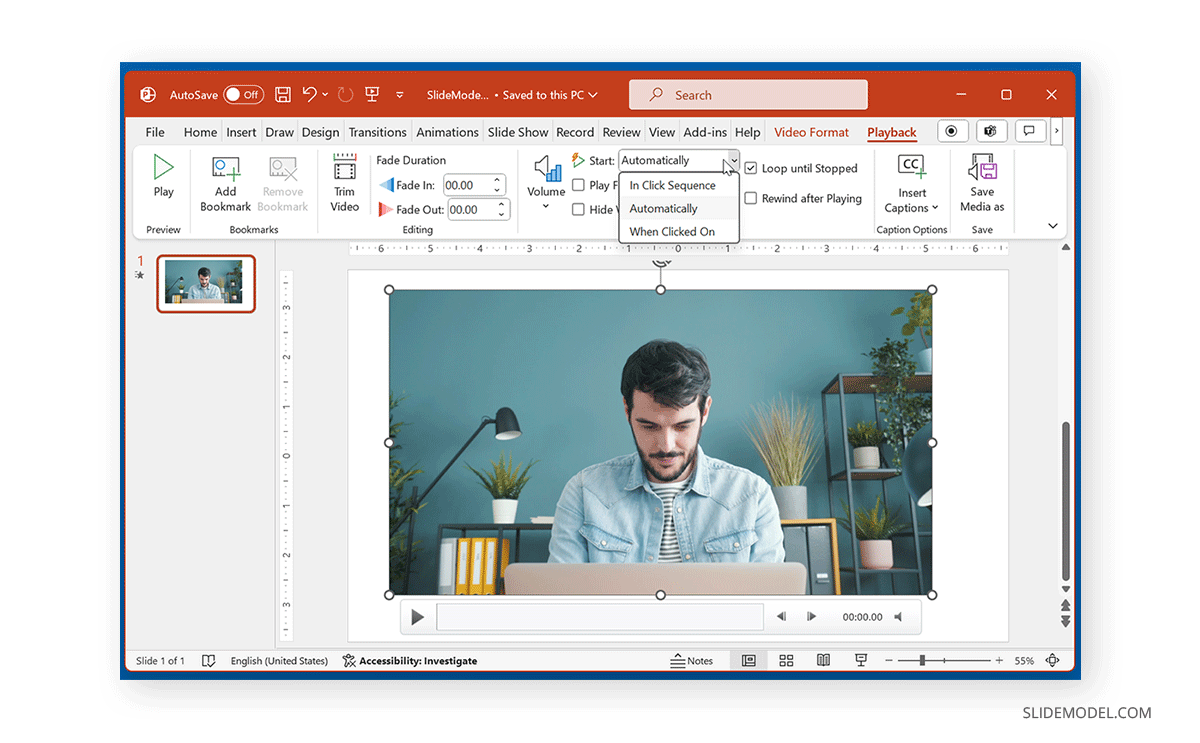
Insert Captions is another option in the Playback tab that enables importing closed captions to be added to the video. The closed captions format supported by PowerPoint is WebVTT.
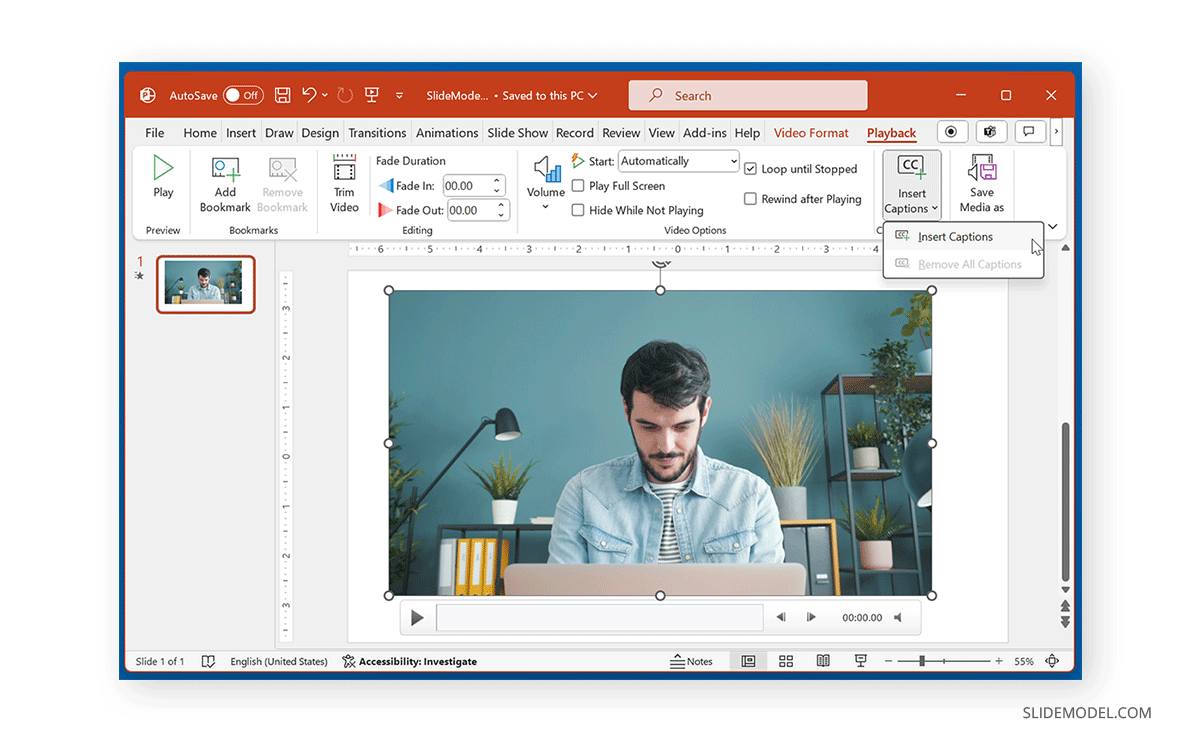
To edit a video in PowerPoint, the Playback tab provides the Editing menu. From this menu, you can trim the video in PowerPoint and add a Fade (in and out) effect. Let’s see how to trim a video in PowerPoint:
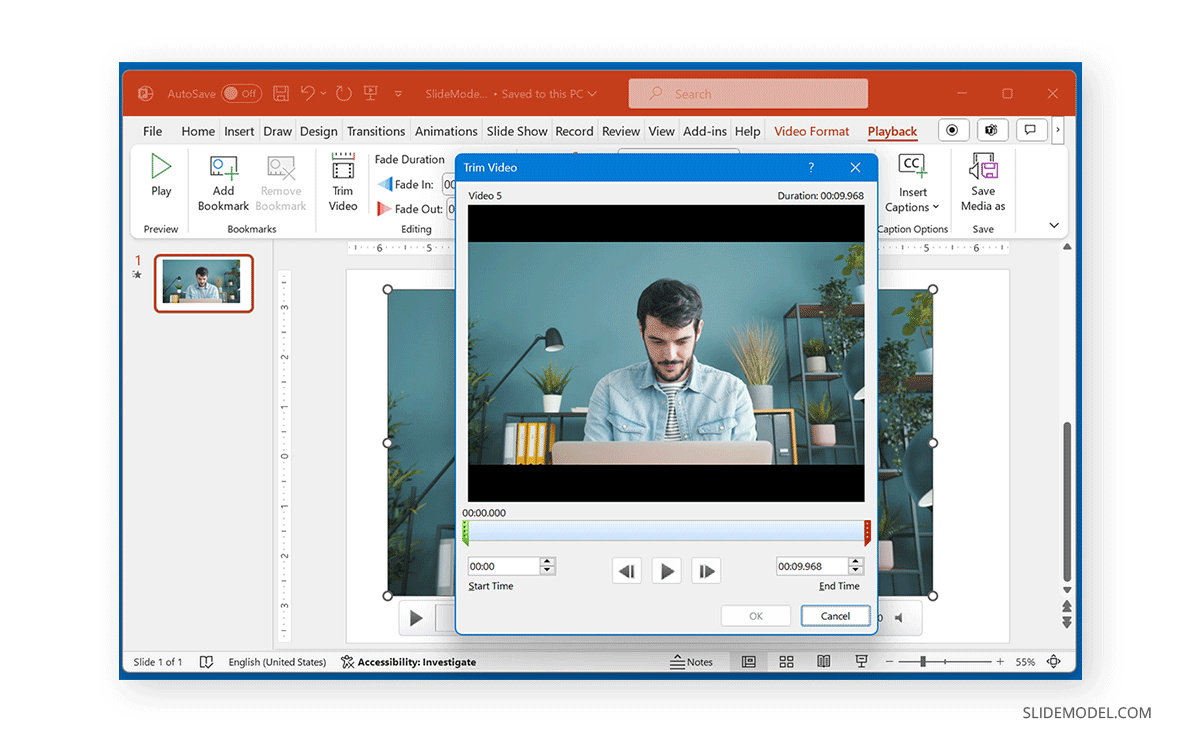
As shown in the screenshot, to trim the video in PowerPoint you need to draft the handles that sets the start time and end time. This way, you can cut the video and trim it so only a portion of the video is being shown.
FAQs
How can I add a video from my device to a PowerPoint slide?
To add a video from your device, go to the Insert tab, select Media -> Video -> This Device. Browse for the video file on your computer and select it to insert it into your slide.
Can I add stock videos to my PowerPoint presentation?
Yes, you can add stock videos. Go to the Insert tab, select Media -> Video -> Stock Videos. Search for the desired video and select it to insert into your slide.
How do I add an online video, such as from YouTube, to my PowerPoint slide?
To add an online video, go to the Insert tab, select Media -> Video -> Online Video. Enter the URL of the video from sources like YouTube, SlideShare, Vimeo, Stream, or Flip, and click Insert.
How can I format the video once it is added to the slide?
After adding a video, you can format it using the Video Format tab. Here, you can adjust the size, crop, rotate, and change the colors of the video. You can also use the Video Styles menu to add a frame or change the video outline.
How can I adjust playback settings for a video in PowerPoint?
Go to the Playback tab to adjust playback settings. You can choose to start the video automatically, on click, or in a click sequence. Other options include playing the video in full screen, looping it, and hiding it when not playing.
Can I add closed captions to a video in PowerPoint?
Yes, you can add closed captions. In the Playback tab, select Insert Captions and import the WebVTT file for your video.
How to Insert Offline Video in PowerPoint
To insert an offline video in PowerPoint:
– Go to the Insert Tab: Open your PowerPoint presentation and navigate to the Insert tab on the Ribbon.
– Select Media: In the Insert tab, find the Media group and click on Video.
– Choose Video from This Device: Select Video on my PC from the dropdown menu.
– Browse for the Video File: A file explorer window will open. Browse to the location where your video file is stored on your device.
– Insert the Video: Select the video file you want to insert and click Insert.
The video will be added to your slide. You can then resize and position it as needed.
Final Words
Videos added to PowerPoint can be of immense help in explaining something important to an audience. Many YouTube videos make it easy to quickly provide the necessary information instead of using multiple slides or creating a custom video to get your point across.
By effectively using videos in your PowerPoint slides, you can make your slides easier to grasp and work smart to present ideas and concepts quickly. However, it is worth testing out the slides once the videos are added by running them as a slideshow. If it’s an online video, ensure you have a stable Internet connection when presenting your slides; if it’s an offline video added to your slides, make sure the slides don’t lag on the system you are using.
Do you know you can also convert slides to videos? See our tutorials on how to convert a PowerPoint presentation to an HD video and how to convert a Google Slides presentation to a video to learn about turning your slides into video presentations.

